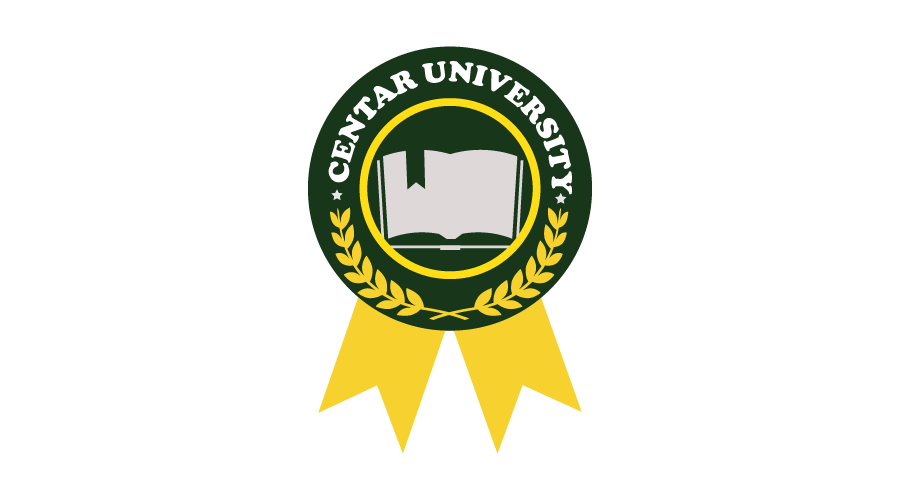Embarking on a journey to elevate your professional prowess in Scotland? Media training is your golden ticket! In the dynamic and cutthroat realm of today’s professional landscape, the ability to communicate effectively is the linchpin for career triumph. Whether you’re a budding entrepreneur, a corporate luminary, or a public persona, mastering the nuances of media engagement can be the catalyst for propelling your professional trajectory. So, grab your notepads and prepare to delve into why media training in Scotland stands as the clandestine asset poised to revolutionize your approach to interviews, presentations, and all facets of public interactions. Let’s plunge into the details!
Unveiling the World of Media Training in Scotland
In the backdrop of Scotland’s rich history and vibrant culture, a plethora of accomplished individuals spanning various domains have emerged. From literature to sports, Scotland has perennially cultivated excellence. In recent times, it has also emerged as a global magnet for media training, drawing professionals from every corner of the globe.
Media training is the art of equipping individuals to seamlessly navigate media interactions and adeptly handle public relations scenarios. In our digitized world, where information proliferates at lightning speed, media training has evolved into an indispensable tool for those aiming to ascend the professional ladder. Scotland’s claim to fame in this realm lies in its meticulously structured approach to honing communication skills.
At the heart of Scotland’s appeal is its array of premier media institutions, offering comprehensive courses on media training and communication. These courses are meticulously crafted to endow individuals with practical skills, readily applicable in real-world scenarios.
Scotland’s diverse topography provides a canvas for hands-on experience across various media forms. From television studios to radio stations and film production houses, the avenues for exposure and learning from industry mavens are abundant. Access to cutting-edge facilities and seasoned professionals transforms Scotland’s media training programs into laboratories for skill refinement and a nuanced understanding of diverse media forms.
An added allure of choosing Scotland for media training lies in its emphasis on developing transferable skills – skills that transcend industry boundaries. Communication, a linchpin of any profession or business, becomes a potent tool for professional excellence through media training.
Scotland’s ethos of fostering creativity and innovation sets the stage for exploring novel ideas and communication strategies. Learning from diverse perspectives and collaborating across different backgrounds enables individuals to broaden their horizons and cultivate a distinctive approach to handling media and public relations.
The confluence of stellar educational institutions, a varied media landscape, and a commitment to fostering creativity positions Scotland as the quintessential locale for media training. Whether you’re a novice aspiring to carve your niche or a seasoned professional seeking skill augmentation, media training in Scotland is unequivocally the game-changer for your professional evolution.
The Significance of Media Training for Professional Advancement
In a landscape where media exerts an ever-growing influence on public opinion, possessing robust media skills is integral to professional advancement. In the era of social media dominance and relentless news cycles, individuals and businesses find themselves perpetually under the scrutiny of the media. Consequently, adept media skills have become a non-negotiable facet for professional success.
Media training emerges as the linchpin for individuals seeking to propel their careers in this digital age. Be it a corporate executive, a political figure, or a public persona, the ability to artfully engage with the media can spell the difference between triumph and stagnation.
A primary boon of media training is the mastery of tailoring messages to diverse audiences across varied platforms – be it television interviews, radio shows, or social media posts. Media trainers adeptly guide individuals in crafting compelling messages that resonate with target audiences, thereby facilitating the achievement of goals.
Furthermore, media training imparts the finesse needed to navigate challenging questions and confrontational situations with composure and finesse. Regardless of one’s preparation, unexpected queries or probing reporters can destabilize even the most seasoned professionals. Media training equips individuals with the acumen to remain composed under pressure and address any situation with professionalism.
An often-overlooked facet of media training is the mastery of body language and non-verbal cues during interviews or presentations. These subtle gestures wield substantial influence over how one’s message is perceived by the audience. A proficient media trainer becomes a guide in developing impactful body language techniques that exude confidence and credibility.
Moreover, media training extends its purview to crisis management skills. In a digital ecosystem where information disseminates rapidly through diverse channels, the ability to adeptly handle negative publicity or crises becomes imperative. Media trainers proffer strategies for crisis communication, preparing individuals to navigate potential scenarios with finesse.
Beyond crisis management, regular participation in media training sessions keeps professionals abreast of industry trends. Given the ever-evolving media landscape, staying informed about novel techniques and strategies for effective communication is paramount.
In summation, media training is the harbinger of professional growth. It imparts individuals with the skills requisite for navigating the complex terrain of media and efficaciously communicating messages to diverse audiences. With the right training, professionals can elevate their careers and realize their objectives in today’s fiercely competitive business environment.
Fostering Confidence and Credibility
In the contemporary tapestry of our interconnected world, the media assumes a pivotal role in shaping public opinion and influencing decision-making processes. For a professional seeking to make an indelible mark, possessing the confidence and skills to articulate messages across various media channels is imperative. Enter media training in Scotland, a transformative force for professional growth.
Foremost among the manifold benefits of media training is its role in building confidence. Many professionals find themselves daunted or uneasy when confronted with interviews, public speeches, or even social media engagements. Media training becomes the crucible for arming individuals with the tools and techniques essential for handling such situations with grace and poise. Through simulated exercises and real-life scenarios, participants hone their abilities to project their voice, utilize body language effectively, and maintain composure under duress.
Simultaneously, media training is instrumental in constructing credibility as a spokesperson or expert in one’s field. Armed with refined communication skills, individuals learn to convey ideas succinctly and clearly while radiating professionalism and authority. This not only fortifies one’s personal brand but also augments the reputation of the associated organization or business.
A pivotal contributor to credibility lies in understanding different media outlets and their respective audiences. Media training imparts the ability to tailor messages according to the medium – be it television, radio, print, or digital platforms. Appreciating the nuances of each medium ensures that messages resonate accurately and persuasively.
Crisis communication strategies constitute another critical dimension covered by media training. In a news cycle that operates around the clock, organizations must be primed to navigate potential crises that could tarnish their reputation. Media training equips individuals with the tools to handle probing questions from reporters with confidence while safeguarding the image of their organization.
Furthermore, undergoing media training in Scotland, a country distinguished for its robust journalism industry, exposes participants to seasoned trainers with firsthand experience in media interactions. This exposure facilitates imbibing valuable insights and tips on navigating the intricacies of media, rendering individuals more credible and self-assured as spokespersons.
In essence, media training in Scotland emerges as the catalyst for professional growth, fostering confidence, building credibility, and imparting essential skills to navigate diverse media scenarios. By investing in this transformative training, individuals can elevate their personal brand and emerge as more effective communicators within their industry and beyond.
Choosing the Optimal Media Training Program in Scotland
Selecting the right media training program in Scotland can be a formidable task, given the myriad of options available. However,
by adhering to key considerations, you can ensure that the chosen program aligns seamlessly with your professional aspirations.
- Reputation and Experience: Commence your exploration by scrutinizing the reputation and experience of the media training provider. Opt for established companies or trainers with a proven track record, substantiated by positive reviews from past clients. This lends confidence in the capacity of the provider to deliver top-notch training.
- Industry Expertise: Ensure that the media training program has a track record of catering to professionals in your specific industry. This ensures an understanding of the unique challenges and opportunities pertinent to your field, allowing for tailored training.
- Customized Training Programs: Recognize the individuality of each participant and organization. Seek providers offering customized programs rather than generic solutions. Tailored programs empower participants to concentrate on areas most germane to their objectives.
- Practical Approach: Effective media training transcends theoretical knowledge, encompassing practical exercises and simulations to apply acquired skills in real-world scenarios. Ascertain the inclusion of hands-on elements in the program to gain practical, immediately applicable skills.
- Interactive Learning Methods: Beyond hands-on activities, prioritize programs employing interactive learning methods like role-playing, group discussions, and feedback sessions. Such methods enhance engagement and provide opportunities for participants to glean insights from shared experiences.
- Budget Considerations: While the significance of media training for professional growth is undeniable, it’s prudent to consider budget constraints. Seek providers offering flexible pricing or group booking discounts, ensuring that the investment aligns with your financial parameters.
- Flexibility and Convenience: Acknowledge the constraints of busy schedules and seek programs offering flexibility in terms of timing and location. Some providers extend online training options, allowing participants to engage from the comfort of their homes or offices.
By factoring in these considerations, you can confidently select a media training program in Scotland that not only enhances your skills but harmonizes with your professional goals. Conduct thorough research and seek recommendations from peers or industry associations before making a decision. Armed with the right media training program, you can propel your career to new heights, distinguishing yourself in today’s fiercely competitive landscape.



